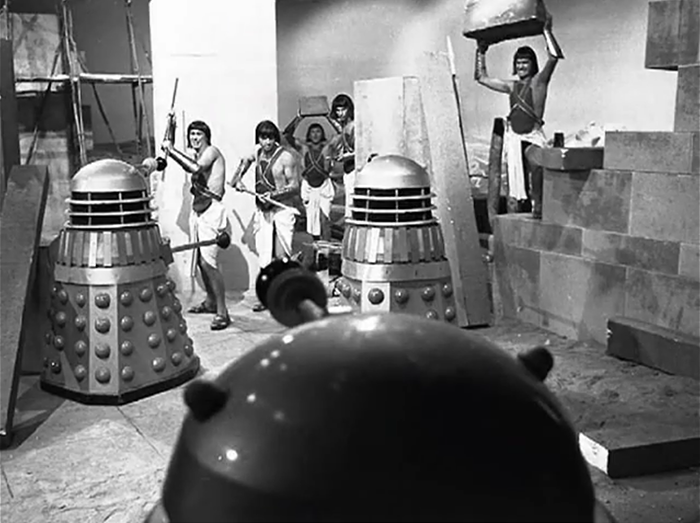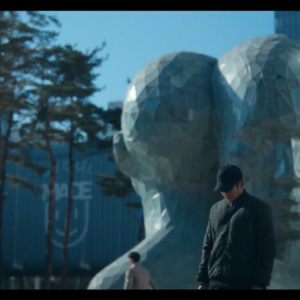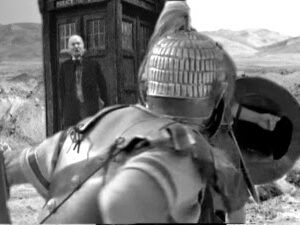All Alone in the Night

There are moments in your life when you remember the classics of science fiction and how they predicted all the ways in which humanity could go horribly wrong.
For me, lately, it’s remembering a small scene in Babylon 5 (B5) where our hero, Sheridan, is talking to a lackey from the new government (one who bears a striking and almost eerie resemblance to the Type A, skinny, blonde, female media representatives the Trump administration keeps rolling out to tell its blatant lies).
The summarised conversation is about homelessness and goes something like this:
“EarthGov has promised a job to anyone who wants one. So if they don’t have one, they don’t want one,” she tells him over dinner, “Earth doesn’t have any homeless.”
“When did we do that?” he asks her, in some disbelief over how blatant a lie it is.
“When we rewrote the dictionary,” she replies, in a tone as cynical as it is dismissive. She is as unfazed by the deceit as she is by admitting to it.
You can imagine why this scene comes to my mind several times a day.
What I remember about Babylon 5, more than 25 years since the first episode aired, is the powerful messages the later seasons had about fascism and how it feels to stand slightly apart from a world descending into darkness and being unable to stop it.
How do you feel, how do you cope, how do you respond? Not just to the horror and the injustice but to seeing people you know and love being corrupted by the system. How do you reconcile good people around you becoming complicit in its crimes and petty cruelties. How do you continue to serve in your nation’s military (or public service) when it has been hijacked by ideologues who undermine everything you thought your organisation, your country, your planet stood for?
B5 may be a blunt tool at times but it charts with unnerving accuracy the way in which our institutions, including the media, can be slowly but completely undermined until it’s merely a tool of the regime.
Unlike shows such as Star Trek, B5 didn’t have the perfect humans coming across dysfunctional societies and judging them: a conceit that can be seen as colonial and oftentimes redolent of the Great White Saviour Myth. Star Trek had its moments but the crew of the USS Enterprise (and Voyager at times) could come across as entitled and ethnocentric.
Not to say that B5 didn’t succumb to the need to have a chiselled-jawed white man as its universe’s saviour – it was, after all, an American show. And Earth’s culture is frequently portrayed as gratingly American – it was, after all, an American show. But it dealt far better with acknowledging the pressure points in our own species than did other vehicles that aired around the same time.
Humans are as flawed as anyone else, B5 says. We don’t have the answers; we may even be the galaxy’s biggest problem at times. We are certainly not the inherent solution. Not that B5 goes as far as Farscape did in attempting to be an anti-Star Trek, mostly because it wasn’t positioning itself with or against anything in particular. It was always uniquely, brilliantly itself – even when it was being juvenile or overly earnest or trying a little bit too hard. B5 didn’t rely on metaphor as much as allegory and could get a little preachy at times. What passed for humour was often juvenile and a little broad – sometimes even embarrassing – and some of the dialogue is shockingly overwritten and even overwrought.
But B5 was nothing if not ambitious. Sprawlingly so.
An old-school character-driven space opera. And I’m not sure they really existed before B5 anyway.
Based on Lord of the Rings in ways that are sometimes subtle and others… not… J. Michael Straczynski had a clear, defined (but nonetheless malleable) overarching plan for the show. Having a showrunner with a clear vision who wrote the majority of the episodes (even when he could have benefited from some assistance) is the show’s best quality. Unlike your standard television show, it has true coherence, true continuity and a consistent vision over time and over its seasons. It had its normal share of bumps in the road but the final product is far greater than the sum of many of its cut-rate parts.
Like all great science fiction, its low budget and B actors frequently delivered something that transcended its big budget cousins.

Its supporting cast, locked behind prosthetics and wigs and false teeth, were amazing and I still don’t know how Peter Jurasik and Andreas Katsulas aren’t household names. Their portrayals of Londo Mollari and G’Kar respectively were extraordinary; taking characters who could have been caricatures or buffoons and giving them depth and gravitas.

Most reviews of B5 would undoubtedly mention the show’s CGI; its use of which was groundbreaking at the time. Of course, this is one thing that has dated quite a lot but it merely speaks now to the show’s ambition.
With the world the way it is, and with a clear dearth of decent science fiction being produced, it’s not surprising that I would be drawn to a B5 rewatch. Some science fiction is so timelessly good and so philosophically en-pointe that it doesn’t even matter that it’s sometimes really bad.

Midnight On the Firing Line
It was the dawn of the third age of mankind – ten years after the Earth-Minbari War.
The Babylon Project was a dream, given form. Its goal: to prevent another war, by creating a place where humans and aliens can work out their differences peacefully. It’s a port of call – home away from home – for diplomats, hustlers, entrepreneurs, and wanderers.
Humans and aliens, wrapped in two million, five hundred thousand tons of spinning metal . . . all alone in the night.
It can be a dangerous place, but it’s our last best hope for peace.
This is the story of the last of the Babylon stations. The year is 2258. The name of the place is Babylon 5.
What struck me when I pressed play on the first episode, is that the show just drops you into the world of the space station, Babylon 5 with no establishing mythology. There’s no insert character, no loving tender pause on our hero so you can feel you know them. In fact, there is no hero, not at first. There’s just people going about their daily business and the feeling that you’ve walked into a world that already exists.
I’d forgotten that about the show. That for all its flaws, this show is so good at worldbuilding. It’s as though it all exists in its entirety right now and you’ve just parachuted in. A lot of genre shows start with a single character and their closest associates and build out from there and that world gets larger and larger each season. It’s a narrative structure that’s not always successful.
B5’s laudable ambition instead creates a complex, pulsing, three-dimensional alternative universe and throws the viewer into the middle of it without holding their hand.
The aftermath of the Earth-Mimbari War, the conflict between the Narn and the Centauri. The enigmatic Kosh and his even-more enigmatic race, the Vorlons. The presence of raiders, refugees, gun runners, telepaths and – as a subtle thread throughout – the election on Earth won by a man who wants to, “Cut the budget, keep us out of war, and preserve Earth cultures in the face of growing non-Terran influences”.
An election which passes by as a vague bureaucratic annoyance to people trying to both stop a war AND get to the polls and as a quick news report you barely listen to before lurching off to bed after a hard day.

This is television for people who don’t mind doing some of the cognitive heavy lifting and not being coddled. And because of the show’s intricate planning and detail-obsessed showrunner, we are treated from the first frame to the seeds that will sprout in later seasons.
The Narn were victims of an attempted genocide, now turned aggressor. It’s an Israeli allusion that no American network would have the uterus to do today. Victims become perpetrators. It doesn’t stop them being victims but it also doesn’t stop them being perpetrators.
On rewatch, Londo telling Sinclair that he and G’Kar will kill each other in 20 year’s time is the kind of detail that sends shivers down your spine. And that conversation was a mere 10 minutes in.
“Twenty years from now,” he tells Sinclair, “one of us will be wiser and older or one of us will be dead. Who’s to say?”
Honestly, shivers. In fact, Londo’s entire position in this conversation is so perfectly emblematic of who he is and yet so full of the potential of who he will eventually be that it’s almost eerie.
The show starts with an unprovoked attack on a Centauri Agricultural Station and then segues straight into a monologue that tells us that B5 is our last, best hope for peace.
As we can no doubt guess, it fails. But for now, we have hope.



